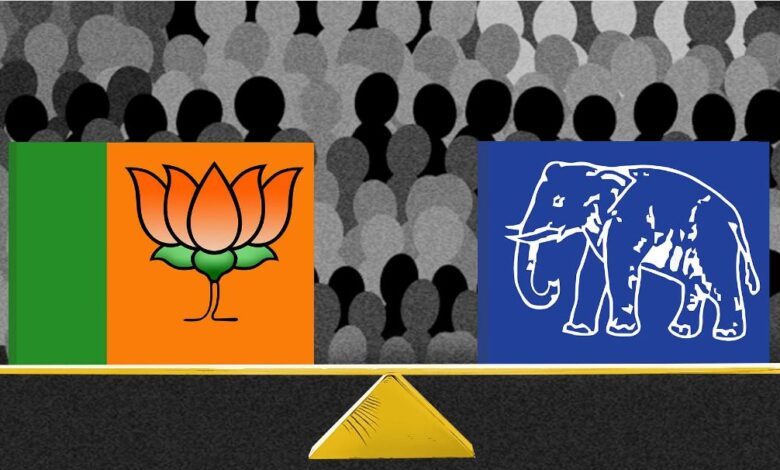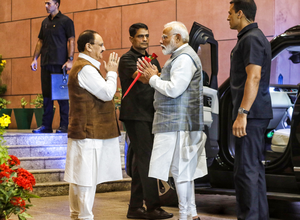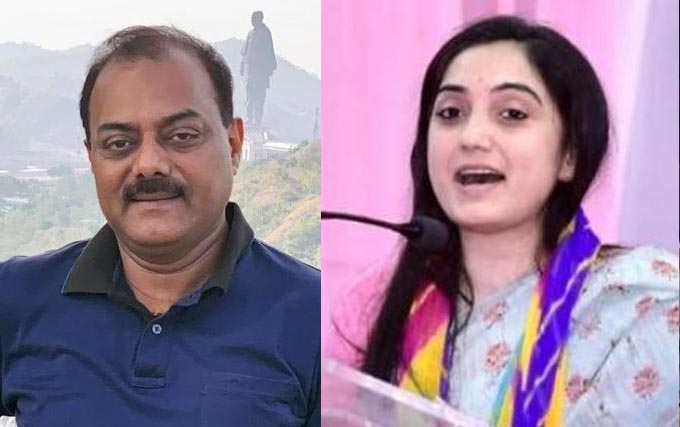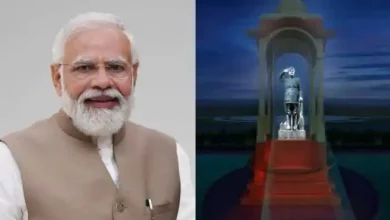Will Dalit Politics Give A Headache To BJP?

Uttar Pradesh: The 18th Los Sabha Election has already been held. But before the results of the 2024 Lok Sabha elections, hardly anyone would have thought that the Dalit voters of North India would support SP and Congress instead of BSP. Dalit politics in North India seems to be going through ups and downs. There are very few Dalit leaders who are influenced by the voters and they are voting for them.
In the last few years, social change has been seen among Dalit voters. People of Dalit society no longer want to remain just workers/voters of any party or organization or followers of a particular leader. This is the reason why the opposition parties are getting the most benefit from this change. In simple words, the Dalit community, which till now is considered to be the voter of Bahujan Samaj Party i.e. BSP now wants its full political participation. This is the reason why Dalits voted for parties like Samajwadi Party and Congress in the 18th Lok Sabha elections.
According to some national media reports, looking at the results of the 18th Lok Sabha elections, it would not be wrong to say that this time the election has been completely opposite to the results of the 2014 elections. In 2014, the party benefited from the marginalization of Bahujan Samaj Party (BSP) in UP and Dalit leaders like Ram Vilas Paswan and Ramdas Athawale in Bihar and Maharashtra forming an alliance with BJP. But the last three Lok Sabha elections and their results show that now Dalit voters want their social change. The voting pattern of Dalit voters has changed since 2014. In the 2019 Lok Sabha elections, BJP won 46 seats out of 84 Lok Sabha seats reserved for Scheduled Castes, but this time they were able to get votes only on 30 seats. On the other hand, Congress has increased the number of reserved seats three times from 6 to 19.
Similarly, talking about Uttar Pradesh, out of the 80 Lok Sabha seats in this state, 17 seats are reserved for Scheduled Castes. Out of these, this time Bharatiya Janata Party won 8, Samajwadi Party (SP) won 7, Congress won 1 and Chandrashekhar Azad (Azad Samaj Party-Kanshiram) won 1 seat. A survey report says that the SP-Congress alliance got 56 percent non-Jatav Dalit votes and 25 percent Jatav Dalit votes in Uttar Pradesh this time. This change can have a long-term impact on the politics of the state.
What is the biggest reason of BJP’s defeat in UP?
The biggest reason for BJP’s defeat in Uttar Pradesh is the party not getting Dalit votes. According to the CSDS data, in this state with 80 Lok Sabha seats, 92 percent Muslims and 82 percent Yadavs voted for India Block, but the alliance also got 56 percent of the non-Jatav Dalit votes. Not only this, 25 percent Jatav Dalits also voted for the alliance.
It simply means that BJP has got less Dalit votes this time. The way Dalit votes have shifted towards Congress and Samajwadi Party, BJP should become alert. But looking at the formation of the new cabinet, it does not seem that the defeat in UP has any effect on the party.






